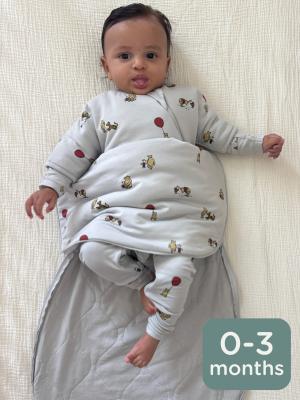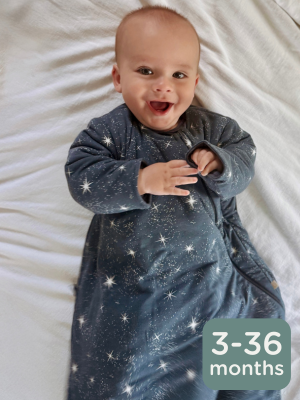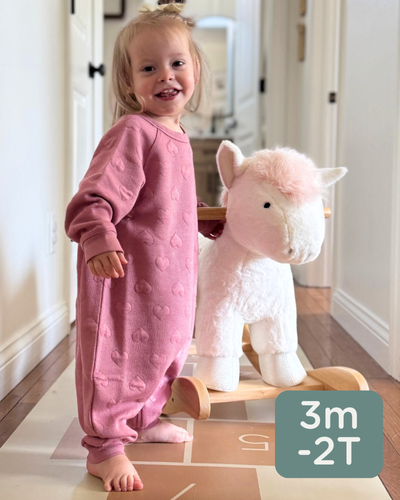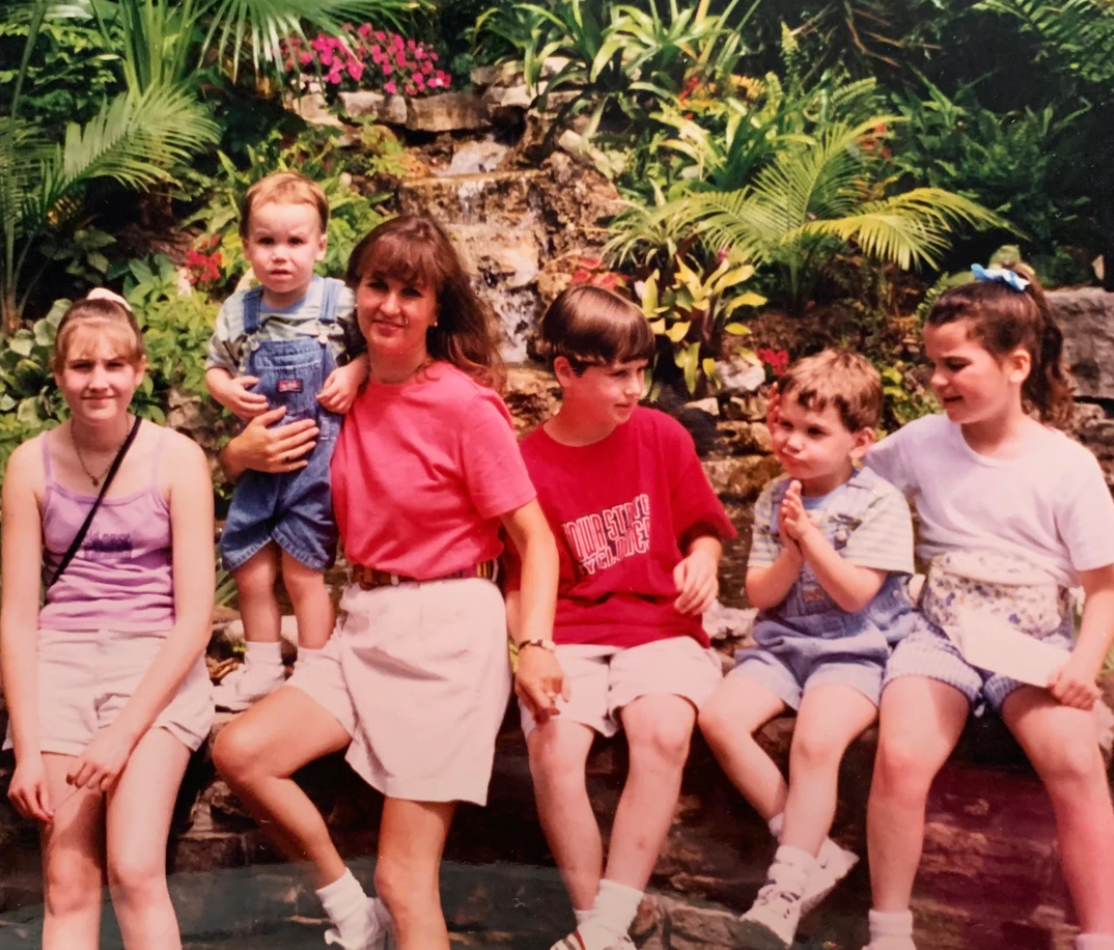Confession: I had no idea what cluster feeding was when we had our first daughter.
If you're a new or expecting parent and you don’t know what cluster feeding is yet, you’re in good company!
When Darcy, my first daughter, was about three weeks old she became uncharacteristically fussy. This is when I learned one of my most important motherhood lessons. Stay tuned.
Darcy cried for a couple evenings in a row. A conversation almost three years ago with my husband looked like this:
“What’s wrong with Darcy?” -Drew, who just got home from work to a sad baby and exhausted mom
“I have no idea.”
“Is she hungry?”
“I just fed her, but she seems hungry again.”
“Here, let me help.” Drew walks Darcy around the house, talks to her, changes her diaper….Darcy continues crying and I was probably crying at this point too.
So, I called our pediatrician and told him that I thought Darcy was sick. I explained her behavior and he said, with confidence, that she was cluster feeding. What’s that?? (I had so much to learn!)
What Is Cluster Feeding?
Cluster feeding means that your baby needs extra nutrients and wants to nurse more frequently. So instead of nursing every 2-3 hours, your little one might want to nurse every hour for several hours straight. This is usually a sign that your baby is going through a growth spurt.
Cluster feeding is most common for breastfed babies. If your baby is bottle fed and cluster feeding, they will just need extra ounces of milk; get those backup bottles ready!
Heather Turgeon, a psychotherapist and author of The Happy Sleeper, said in an article on Healthline that “cluster feeding is likely a way for babies, who have maturing nervous systems, to regulate. It could also be a way to store up on food for the night.”
My pediatrician explained this and then said four magic words that changed my life: FEED HER ON DEMAND.
How Long Does Cluster Feeding Last?
Cluster feeding usually occurs around three and six weeks, and could continue on and off for the first few months when a growth spurt hits. (Norris, 2018)
How did I not know this?
My tiny girl was just REALLY hungry and REALLY mad that I wasn’t immediately giving her what she wanted: My milk! And lots of it!
I’m not mad at myself for being ignorant to the ins and outs of cluster feeding; I’m mad at myself for not trusting my instincts. I knew Darcy was hungry, but I thought that I was only supposed to nurse every two hours, so instead of trusting my gut, I waited until my pediatrician gave me permission to do what felt so natural. Nurse on demand. The lesson I learned was to trust my instincts and follow my baby’s cues. (Hopefully Darcy isn’t permanently scarred from my mistake!)
I also learned how exhausting cluster feeding is, but knowing the signs and being prepared is the game changer.
Signs Your Baby Is Cluster Feeding:
- They are hungry for stretches of time, usually in the evening
- They won’t stop crying until fed
- They don’t need a new diaper, they don’t have to burp, and are otherwise fine
- They are content when eating
What If I Don’t Have Enough Milk?
I worried about this too. The first day I began feeding her on demand, my breasts ran out of milk and I panicked. Has anyone ever tried to quickly thaw frozen breast milk with a screaming baby in their arms? It takes FOREVER! Drew and I learned our lesson and had a bottle ready to go for next time. But the amazing thing was that her need for milk boosted my milk supply. Supply and Demand: the more milk she needed, the more milk I made. (The many wonders of motherhood will never cease to amaze me.) My advice is to have a backup bottle ready, but to keep nursing. Your body will help you control the amount of milk you need just by listening to your baby’s needs.
“So while we can have theories about why they cluster feed, what matters is that we let them do it — that’s the way to establish and maintain mom’s milk supply” (Turgeon, 2018).
Cluster Feeding and Sleep
Darcy started cluster feeding at night from about 6-10pm. After this marathon of nursing, she slept great! Laney, my new baby, cluster fed from about 11pm to 3am. (Yikes!) With both of my daughters, we took the best naps after their “cluster feeding” session. As you can imagine, cluster feeding is exhausting for baby and mom.
Do babies sleep longer after cluster feeding?
Absolutely! It's a common observation that babies often sleep longer after cluster feeding. During these periods, infants feed more frequently, thereby filling their small stomachs for potentially longer sleep spans. It's like they're 'stocking up' for an extended snooze. However, it's not a universal rule and varies greatly among individual babies. Factors like growth spurts, teething, and general health can influence this pattern. Moreover, it's essential to remember that each child is unique, and their feeding and sleeping patterns can change over time. Thus, while cluster feeding can potentially lead to longer sleep durations, it's not a certainty. Parents are always advised to consult with a healthcare professional if any concerns arise.
Throw the Sleep Schedule Out the Window
Before I learned what cluster feeding was, I was way too focused on Darcy's “schedule.” She was three weeks old and definitely not ready for any kind of schedule! Follow your newborn’s lead, feed on demand, and do not worry about a schedule. Just be there when they need you, hold them, practice lots of skin-to-skin contact, and follow your instincts. When in doubt, call your pediatrician! Don’t wait three days like I did.
Here are some tips to manage cluster feeding:
- Set up a “nursing station” with all your essentials: snacks, a burp rag, your phone, the TV remote, and lots of water!
- Get your partner involved. Make sure he or she knows what cluster feeding is and tell them how to best support you. My husband is great at making sure my water is full, my phone charged, and my ice packs are ready to go.
- Use ice packs/heating pads. The first couple of months of breastfeeding can be particularly challenging. I used these breast therapy packs to ease any discomfort.
- Sleep when you can! This advice is thrown at new moms constantly for good reason. If you know you have a long night ahead of you, hydrate and rest whenever you can. (I know this is easier said than done.)
Our team of moms at günamüna has seen it all. We will continue to share our victories and mistakes to help you through cluster feeding and the night shift.
















